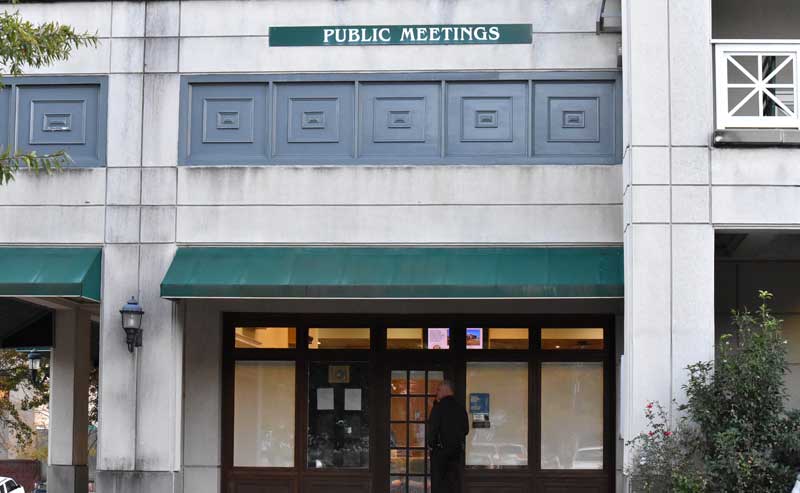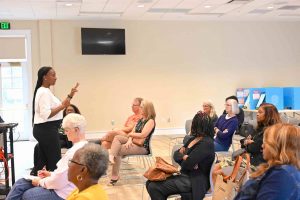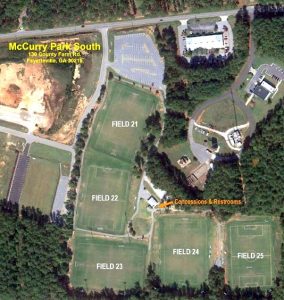Two ordinance changes by the Fayette County Board of Commissioners could make life a little bit easier for some small business owners as well as other organizations such as churches and schools.
The board voted at its Oct. 22 regular meeting to amend the county ordinance that addresses conditional use approval for home occupations in favor of allowing a barbershop or beauty shop to operate as a home occupation.
Those categories were removed as approved home occupations in late 2010 on the advice of a previous county attorney, according to a staff report, but was reconsidered after a citizen request in September of this year. Beauty shops were formerly allowed for many years, the report stated.
The person who made that request spoke to the board at this meeting, saying she has a disabled son and cannot work outside the home. She wants “to do it correctly,” she said of her petition, and is willing to abide by all necessary restrictions.
The amended ordinance will allow in-home operators to see no more than two clients at one time and no more than eight client in a day, operating between 9 a.m. and 7 p.m. Monday through Saturday. The Planning Commission approved the request with one voting against, citing environmental health concerns regarding the impact of a beauty salon on residential septic systems.
Commissioner Steve Brown said he had concerns about this measure being compatible in various residential areas and asked how it would be enforced. Commissioner Randy Ognio said his main concern was that it applied to all residential zonings and he would feel a lot better about it if it were only allowed on larger lots. The petitioner who brought the matter to the county said she was fine with that, as she has a three-acre lot and plenty of parking.
Brown said he would consider a friendly amendment with a lot size minimum, and Chairman Charles Oddo asked if the issue can be sent back to staff for another look. A county staff member pointed out that general contractors and other businesses are already allowed to operate in their residences and there could be a conflict there.
Oddo said he doesn’t have a big problem with it and he doesn’t want to see “the long arm of county government” intrude in this situation. Brown reminded the board about a bed-and-breakfast operation in a home several years ago that caused a major headache and took almost a year to fix. But Oddo said with the one-chair, eight-customer limit he didn’t see this being any more difficult than having friends over to your house.
County staff pointed out that this ordinance would not allow a beautician to have extra employees unless a spouse were a barber. Surrounding counties are handling this matter very similar to what was being proposed here.
The ordinance amendment passed 3-2 with Brown and Ognio against.
The evening’s other public hearing concerned the potential elimination of buffers adjacent to places of worship, colleges and universities, hospitals, private schools, child care facilities, cemeteries, recreation centers and similar institutions registered with the Secretary of State and in A-R or residential zoning districts.
The impetus for this was the planned growth of Konos Academy, which now operates in space it is leasing from Christ Church at Whitewater. The school is looking at the possibility of developing a five-acre tract it would buy from the church but existing buffer requirements for adjoining non-residential land uses make that development very difficult, according to county staff.
Stephen Carpenter, senior pastor of Christ Church at Whitewater, told the board that the church has 26 acres at its location on Hwy. 85 south of Fayetteville, with a subdivision a considerable distance behind the property. Konos is using the church’s athletic field and gymnasium, and the school would like to build its own classroom facility on about 5.5 acres that would be purchased from the church, he said, but the required setback would make the project impossible.
One audience member spoke in opposition, citing concerns about possible declining values of residential properties that abut these kinds of developments.
Oddo said he was concerned not about this petition but other possible uses. Brown said the specific possible uses are spelled out in the ordinance.
A motion was made to send back to Planning Commission to tighten up the proposed ordinance and return it to the board for its Jan. 28 meeting if not sooner. The motion passed unanimously.












Leave a Comment
You must be logged in to post a comment.